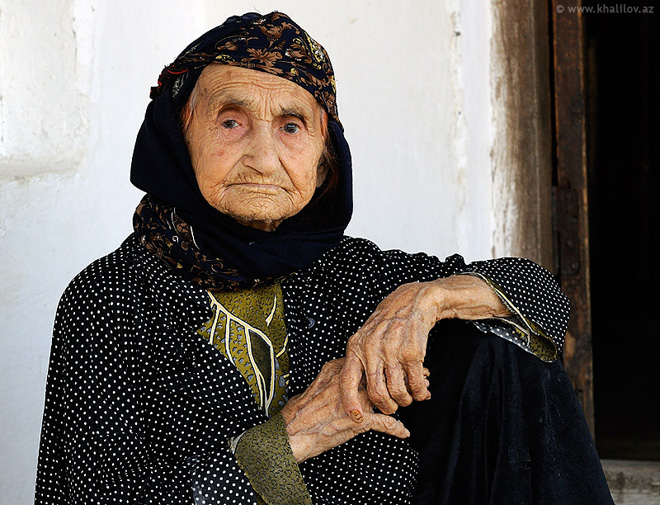Azerbaijan, Baku, June 30 / Trend T.Hajiyev /
Azerbaijan has more centenarians than most regional countries thanks to natural foods and genetics, experts stated this week.
Over 20 centenarians live in Azerbaijan's Lerik district. Lerik Museum of Longevity Director Dilara Fatullayeva told Trend that clean air and a stress-free lifestyle are key factors in longevity.
"These centenarians eat only natural foods, have little stress and live active lives. They are not aware of most events in the outside world. This keeps them free from stress," the director said.
Fatullayeva added that today environmental problems, unnatural foods, and hypertension shorten people's lives.
She stressed that the opening of the museum in Lerik is no coincidence. The city has earned international acclaim as the home to many centenarians.
Fatullayeva said over 500 centenarians used to live in the district.
The museum has over 2,000 exhibits, including information and photographs.
The museum also contains 40 photographs made by French photographer Frederic Lashop, which were exhibited in Paris under the title, "A Trip to Centenarian Country."
Fatullayeva said Lerik resident Shirali Muslimov lived 169 years, and his compatriot Mahmud Eyvazov lived until the age of 152.
According to the director, Eyvazov led an active lifestyle until his death and was constantly working.
These centenarians mostly did not leave their villages and their bond with nature was strong, Parliamentary Social Policy Committee Chairman Hadi Rajabli told Trend.
"The gradually increasing distance from nature and technological development shortens people's lives," he said.
However, he added that genetics also play a role in longevity.
Rajabli said the average lifespan in Azerbaijan has increased in recent years by eight months to 72.8. The average lifespan in Germany and Japan is 80, he said, adding that individuals should keep active and opt against a passive lifestyle to increase this figure.
Longevity is in the genes of the Azerbaijani people, Senior Scientist of Longevity at the Azerbaijani National Academy of Sciences (ANAS) Sevinj Huseynova told Trend. She said food, air and water are also important for longevity.
Meanwhile, she stressed that the authorities are studying the phenomenon of longevity in the country's northwestern and southern regions, as well as on the Absheron Peninsula.
"People living in that region lead active lives," she said. "Very few suffer from hypertension. Many centenarians live in northwestern Azerbaijan."
Ecology and life without stress are basic conditions for longevity, she added. Based on official statistics, Japan and Scandinavia occupy the top spots in terms of longevity, and offer special care to centenarians.
Azerbaijani President Ilham Aliyev signed an order in 2004 to provide certificates and special care to the country's centenarians.
Azerbaijan has 2,639 centenarians in 1989 - more women than men. Based on data provided by the State Statistics Committee, Azerbaijan boasted 2,307 centenarians in 2001. Today, there are less than 2,000.






